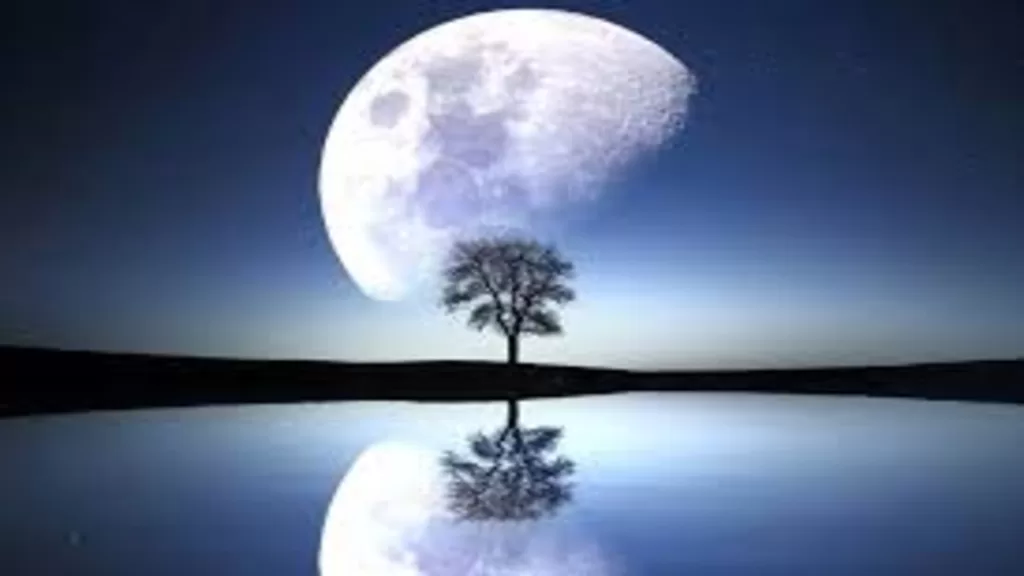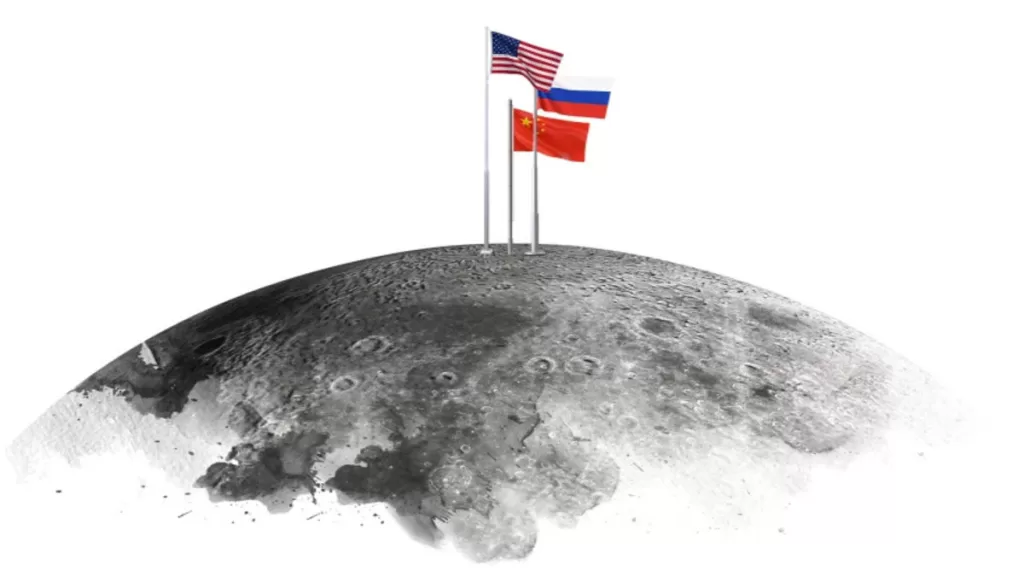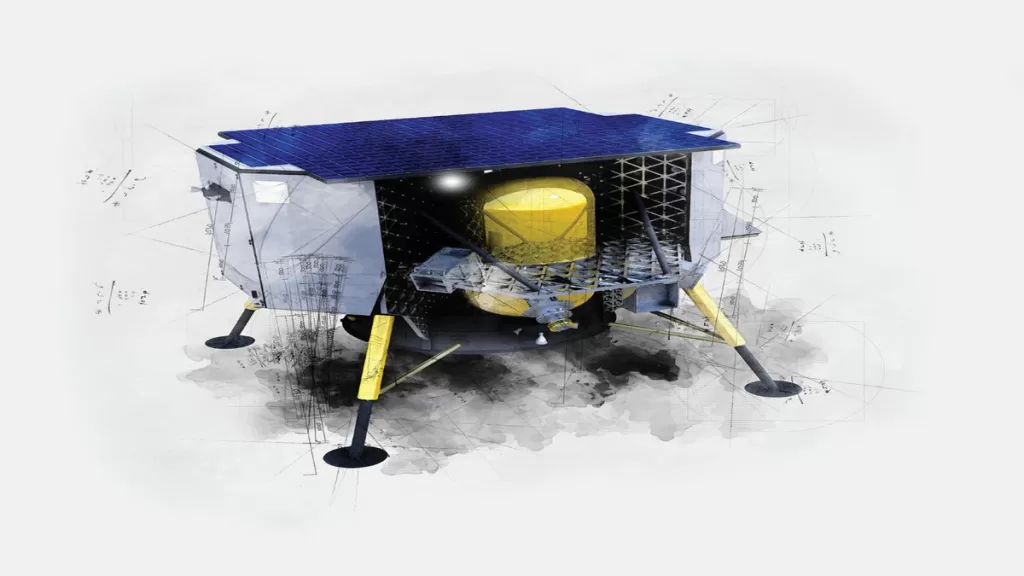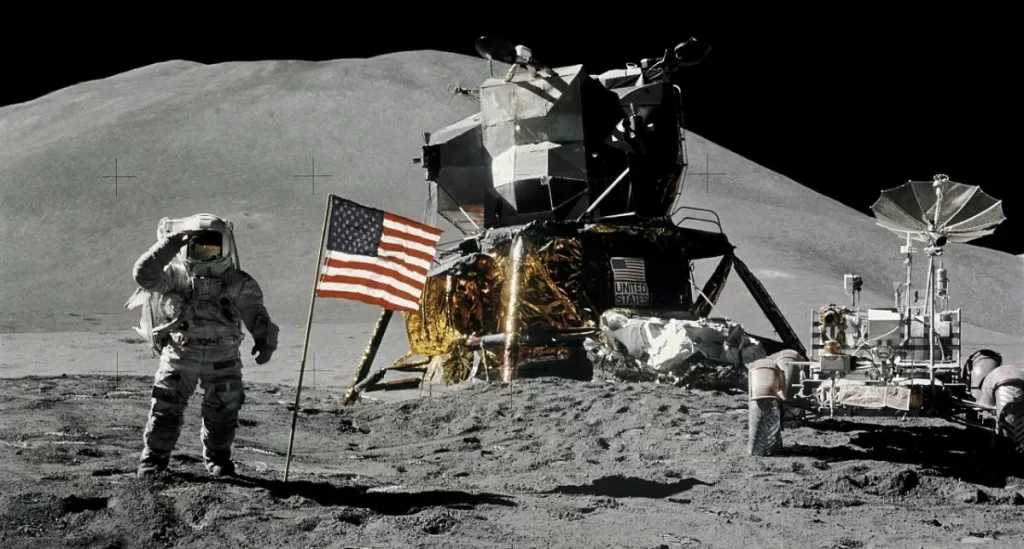A large full moon behind a dark shadow of trees with a blue sky
Who Owns the Moon? Lunar Ownership, Space Race, and the Outer Space Treaty Explained in this write up!
Introduction
The mechanics of space, traditionally regarded as global commons, are currently changing. Space is becoming the new ‘Wild West’ as a result of the escalating great power competition, the absence of comprehensive regulations, and the thriving private space industry. In order to study the complex interplay between national claims and international space accords, as well as the expanding conflicts over who owns the moon and its resources and the possible effects of the current space race, I have attempted to gather material for this article.

The Conflict of the Cosmos
The current conflict between the United States, Russia, and China goes beyond the atmosphere of the planet. As NATO designates space as a “operational domain,” the new cold war not only presents difficulties for satellite operation but also puts life on Earth in jeopardy owing to the dangers of space debris. The stakes have never been higher since satellites in low Earth orbit are so crucial to modern living.

The Race to Dominate the Moon
The ownership of the moon is becoming a contentious issue. Aiming to colonize and explore the moon are ambitious space entrepreneurs like Elon Musk and a number of countries, including China and NASA. For instance, China wants to build a nuclear-powered outpost on the moon by 2028, and NASA wants to build a permanent base there by 2030. In addition to its real estate, the moon has strategic worth due to the large potential stores of rare minerals and water that it may possess. This makes the moon an appealing prospect for future undertakings.

The Developing Space Laws
Many nations have passed legislation allowing private corporations to use space resources in reaction to the space race and rising economic interest. In 2015, a commercial space law was signed by President Barack Obama of the United States, allowing domestic companies to take resources out of space. Following suit, the United Arab Emirates and Luxembourg have emphasized their plans to take part in the developing space mining industry. Additionally, former U.S. President Donald Trump rejected the idea of space as a global commons in his executive order from 2020, which legalized the commercial development of space resources.

The Treaty on Space Navigation
The 1967 Outer Space Treaty (OST) is the primary international agreement that regulates space operations. The convention, which has 113 parties including major spacefaring countries like the United States, Russia, and China as signatories, upholds the idea that space exploration should be carried out for the benefit of all nations and all of mankind. It expressly forbids any government from using sovereignty claims, usage, occupancy, or any other means to claim ownership of any portion of space, including the moon.
Conclusion
Similar to the old Wild West frontier, space exploration and use are becoming more and more competitive. Complex legal and ethical issues are brought up by the rush to own the moon and use its resources. It is still crucial to strike a balance between national interests and communal advantages. The future of humanity’s extraterrestrial voyage will be shaped by the values of collaboration, openness, and mutual understanding as we travel farther into space.
